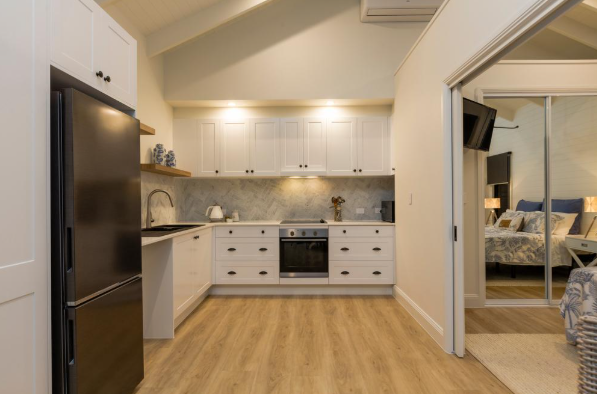
House hacking is a real estate investment strategy that allows homeowners to generate income from their primary residence, helping them offset mortgage payments and build long-term wealth. Whether you’re a first-time homebuyer or an experienced investor, house hacking can be a powerful tool to achieve financial freedom. In this guide, we’ll explore the fundamentals of house hacking, its benefits, various strategies, and key considerations before getting started.
Table of Contents
What Is House Hacking?
House hacking is a strategy where homeowners generate rental income by renting out part of their primary residence. This can be done through traditional long-term rentals, short-term vacation rentals, or creative living arrangements like co-living spaces. The primary goal of house hacking is to reduce or eliminate housing expenses while building equity in real estate.
Benefits of House Hacking
House hacking offers numerous financial and lifestyle benefits, making it an attractive option for those looking to leverage their mortgage to build wealth.
1. Lower Housing Costs
The most immediate benefit of house hacking is reducing or eliminating your monthly mortgage payment. By renting out a portion of your property, you generate additional income that helps cover your mortgage, property taxes, and insurance.
2. Build Equity Faster
Instead of paying rent to a landlord, house hacking allows you to build equity in your own property. As tenants contribute to your mortgage payments, your loan balance decreases, increasing your home equity over time.
3. Tax Advantages
Homeowners who house hack may qualify for tax deductions on mortgage interest, property taxes, depreciation, and maintenance expenses. Consulting a tax professional can help you maximize these benefits.
4. Flexibility in Housing
House hacking provides flexibility in your living situation. If you purchase a multi-unit property, you can start by living in one unit and renting out the others. As your financial situation evolves, you can move out and convert the entire property into an investment asset.
5. Pathway to Financial Independence
By reducing living expenses and building real estate equity, house hacking can accelerate your journey toward financial independence. With careful planning, the income generated from multiple house hacking investments can cover your entire cost of living.
House Hacking Strategies
There are several ways to implement a house hacking strategy. The right choice depends on your financial goals, property type, and personal preferences.
1. Multi-Family Properties
One of the most common house hacking methods is purchasing a duplex, triplex, or fourplex. You live in one unit while renting out the others, generating enough rental income to cover your mortgage payments.
2. Renting Out Spare Bedrooms
If purchasing a multi-family property isn’t feasible, consider renting out extra bedrooms in a single-family home. Platforms like Airbnb or long-term leases can provide steady rental income.
3. Accessory Dwelling Units (ADUs)
An ADU, such as a basement apartment, garage conversion, or backyard cottage, can serve as a rental unit while you continue living in the main house.
4. Co-Living Arrangements
Co-living is an innovative approach where multiple tenants share a home while each rents a private bedroom. This strategy works well in expensive housing markets where demand for affordable living options is high.
Financing Your House Hack
Securing the right mortgage is essential for a successful house hacking experience. Several loan options can help you get started:
1. FHA Loans
Federal Housing Administration (FHA) loans require as little as 3.5% down and allow you to purchase multi-unit properties (up to four units) as long as you occupy one unit.
2. VA Loans
Veterans and active-duty service members can use VA loans to finance multi-unit properties with zero down payment and favorable loan terms.
3. Conventional Loans
Conventional loans typically require higher down payments but offer competitive interest rates. Some lenders allow house hacking strategies with conventional financing.
4. USDA Loans
USDA loans offer 100% financing for those purchasing in rural areas, making house hacking an affordable option.
Key Considerations Before House Hacking
Before diving into house hacking, consider these important factors:
1. Local Zoning and Rental Laws
Regulations vary by location, so research local zoning laws, short-term rental restrictions, and landlord-tenant regulations before proceeding.
2. Tenant Screening Process
Choosing responsible tenants is crucial to maintaining a positive house hacking experience. Conduct thorough background checks, verify income, and establish clear lease agreements.
3. Property Management Responsibilities
As a landlord, you’ll be responsible for maintenance, repairs, and tenant concerns. Determine whether you’ll self-manage or hire a property manager.
4. Exit Strategy
Have a long-term plan in place. Whether you plan to sell, refinance, or convert the property into a full-time rental, a well-defined exit strategy ensures long-term success.
Common Challenges of House Hacking and How to Overcome Them
While house hacking offers numerous benefits, it also comes with challenges. Understanding and preparing for these potential hurdles can help ensure a successful experience.
1. Handling Tenant Issues
Renting out part of your home means interacting closely with tenants. To mitigate potential conflicts, set clear expectations, communicate openly, and draft a strong lease agreement.
2. Managing Property Maintenance
Even small maintenance issues can escalate if not addressed. Regular property inspections and budgeting for repairs can help you stay ahead of unexpected expenses.
3. Financial Risks and Market Fluctuations
Rental markets can fluctuate, impacting your ability to find tenants. Having a financial cushion and researching rental demand before purchasing can help mitigate risk.
4. Privacy Concerns
Living with tenants may require adjusting your lifestyle. Setting boundaries and choosing the right tenants can help maintain your comfort and privacy.
Final Thoughts
House hacking is a powerful real estate strategy that allows homeowners to reduce housing expenses, build equity, and generate passive income. You can turn your home into a wealth-building asset by selecting the right property, securing a favorable mortgage, and managing your rental space effectively.
If you’re ready to explore financing options for your house hacking journey, DSLD Mortgage can help. Visit DSLD Mortgage to learn more about mortgage solutions tailored to your financial goals.

